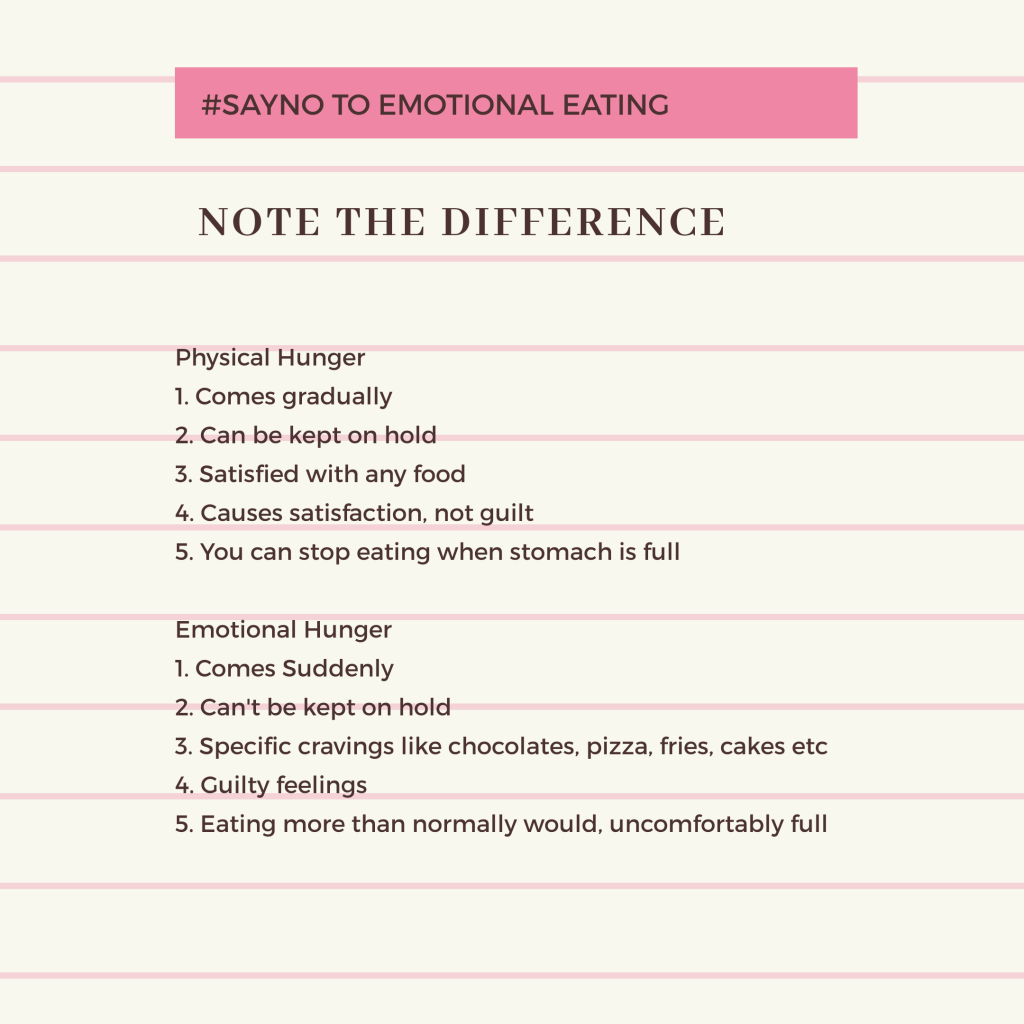Why do people engage in stress eating? Here’s what happens. When individuals get stressed, they often act in impulsive ways because they do not know how to transform stress into something productive. People who are diagnosed with binge eating, stress can be caused by various social and environmental factors that may include peer and societal pressures to have the ‘perfect body type.’
The cycle of stress and eating: Does one thing lead to other?
During stressful situations, your body makes a hormone called cortisol, which increases hunger. If you have binge eating disorder, you already have higher levels of this hormone in your body than other people. That spurs the desire to eat.
Do you tend to feel much better after having sweets or carbs? There’s a reason: These foods tell your brain to release a chemical called serotonin, which boosts your mood. That’s why cakes, cookies, and French fries are often called “Comfort Foods” — but the comforting feelings don’t last long. Soon after you eat these treats, your blood sugar will drop. Feelings of shame and guilt about one’s self-image, increasing weight thus, leading into stress again.

Effective treatments for emotional eating
Practice yoga – Yoga helps in body exercises, flexibility and also number of mindful techniques that foster self-acceptance. Yoga helps to centre the mind and body in a wide range of movements and poses that build strength and balance. Research has shown that women say yoga has “helped them with their self-image, love for own body, ability to reconnect to their body, and self-acceptance.
Meditation – There is a wide range of useful meditation techniques that help to establish mindfulness in eating and thinking patterns. These techniques can be completed in less than 10 minutes and help to bring your mind, breath, and body in the present moment. Meditation cultivates self-acceptance too.
Connect/ Socialise – Oxytocin, a hormone that is also released when you get stressed urges you to seek social connection when experiencing stressful situations. Seeking social connection makes people feel good as they realize that everyone goes through difficult moments.
Counseling – First-line treatment for binge eating disorder in adults is individual psychological therapy. CBT is a time-limited approach that focuses on the interaction between thoughts, feelings, and behaviors. Key components of the treatment include psychoeducation, self-monitoring of key behaviors, and establishing regular patterns of eating. Interpersonal therapy (IPT), dialectical behavior therapy (DBT), addressing impulsive behaviors, are also promising treatments that have some research support for stress eating disorder. Mindfulness-based eating awareness training (MB-EAT), which blends mindful eating with mindfulness strategies, has also shown promise.
Be aware of your eating patterns, don’t fall prey for binge eating. It’s not the best response to stress. You can be much more productive and turn stress into something positive. Respect your body and mind. You are tougher than you think.

